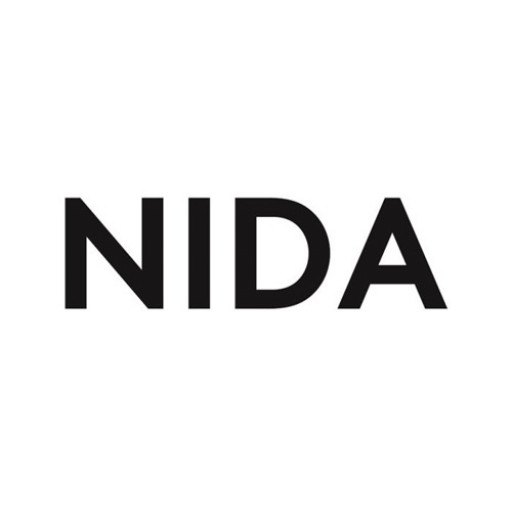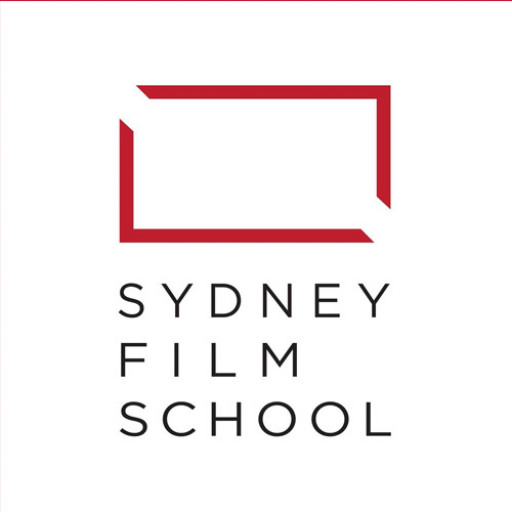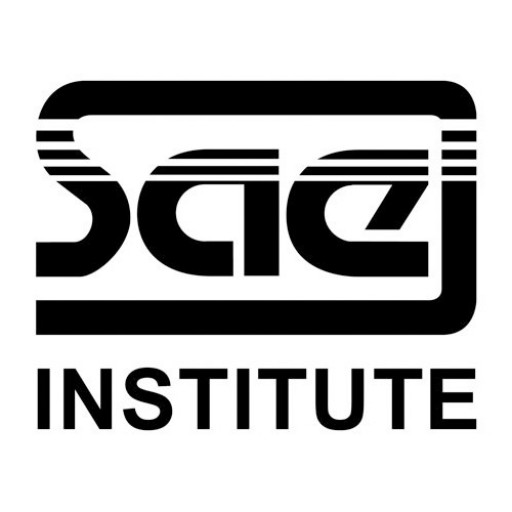Photos of university / #rmituniversity
The Bachelor of Screen and Media at RMIT University offers students a comprehensive education in the dynamic fields of screen production, media creation, and digital storytelling. Designed to equip aspiring filmmakers, media producers, and visual storytellers with practical skills and theoretical knowledge, this program emphasizes hands-on experience across a wide range of media platforms including film, television, digital media, animation, and interactive media. Throughout the course, students will engage with core concepts such as narrative development, production techniques, post-production, and media theory, fostering both technical proficiency and critical thinking. The curriculum is delivered by industry experienced lecturers and integrates industry-standard facilities, enabling students to work on real-world projects and develop a professional portfolio. Collaboration and innovation are key aspects of the program, encouraging students to experiment with emerging technologies and storytelling methods. Students have opportunities to undertake internships and industry placements, facilitating invaluable industry connections and practical insights. Emphasis is placed on sustainability, ethical practices, and cultural awareness within media production, preparing graduates for diverse careers in creative industries. Upon completion, graduates will be equipped to work in various roles such as film and video editors, production assistants, media producers, digital content creators, and screenwriters. The program also offers pathways to postgraduate study for those wishing to deepen their expertise. With a focus on creativity, technical skills, and industry engagement, the Bachelor of Screen and Media aims to produce versatile professionals ready to contribute to the evolving landscape of media and entertainment industries worldwide.
The Bachelor of Screen and Media at RMIT University offers students a comprehensive and practical education in the dynamic fields of film, television, digital media, and interactive storytelling. This program is designed to equip students with both creative skills and technical expertise, preparing them to contribute innovatively to the rapidly evolving media landscape. Throughout the course, students engage in hands-on projects, collaborating with industry partners and utilizing state-of-the-art facilities to develop their individual portfolios and professional abilities.
The curriculum covers a wide range of topics including film and video production, screenwriting, media theory, digital media, animation, multimedia storytelling, and interactive media. Students learn essential technical skills such as editing, sound design, cinematography, and visual effects, while also exploring critical aspects of media theory, audience analysis, and industry practices. The program emphasizes contemporary media trends, encouraging students to experiment with emerging digital technologies and new storytelling formats.
In addition to technical proficiency, students are encouraged to develop strong conceptual and analytical skills through theoretical modules that examine the societal, cultural, and economic impacts of media. Collaboration is a core aspect of the program, fostering teamwork and project management skills vital for working in professional media environments. Students may also have opportunities to participate in internships, industry placements, and collaborative projects to gain real-world experience and build professional networks.
Graduates of the Bachelor of Screen and Media are well-prepared for careers in a variety of roles within the creative industries, including film director, producer, screenwriter, digital content creator, visual effects artist, media producer, and media analyst. The program nurtures innovative thinking, technical mastery, and industry awareness, enabling graduates to adapt to changes in the media sector and contribute meaningfully to the cultural and entertainment industries.
Overall, this program combines creative exploration with practical skills development, ensuring students leave ready to make a significant impact in the diverse and expanding world of screen and media production.
The Bachelor of Screen and Media at RMIT University requires students to complete a total of 24 credit points to graduate. The program is designed to provide students with comprehensive skills in various aspects of screen and media production, including storytelling, technical production, and digital media. Students must undertake core courses that cover fundamental theories and practices in screen and media industries, as well as electives that allow specialization in areas such as filmmaking, television, digital media, or animation. Each course typically carries 6 credit points and involves a combination of lectures, practical workshops, and project-work assessments.
Throughout the program, students engage in hands-on projects to develop their technical proficiency in areas like cinematography, editing, sound design, and visual effects. The curriculum emphasizes both theoretical knowledge and practical application, preparing graduates for employment in diverse media industries. To foster industry engagement, students are encouraged or required to complete internships or industry placements, which provide real-world experience and networking opportunities. Additionally, the program maintains collaborations with external media organizations and studios, ensuring that the curriculum remains current with industry standards.
Entry into the program generally requires a high school diploma or equivalent, with preference given to applicants demonstrating a strong interest or background in media arts. An interview or portfolio review may be part of the selection process. International students must meet English language requirements, such as an IELTS score of 6.0 or equivalent. The duration of the program is typically three years of full-time study, but part-time options may be available. International students should also consider visa requirements and ensure compliance with student visa regulations during their studies. The program aims to cultivate both creative and technical skills, with assessment methods including coursework assignments, group projects, presentations, practical demonstrations, and a final capstone project that synthesizes learning outcomes. Upon graduation, students receive a Bachelor of Screen and Media degree, qualifying them to pursue careers as filmmakers, media producers, digital content creators, or media industry professionals.
The Bachelor of Screen and Media at the Royal Melbourne Institute of Technology (RMIT) offers diversified options for students to finance their studies. International students are required to pay tuition fees, which vary depending on the program and year of study, with a typical annual fee approximating AUD 34,400. Domestic students benefit from government-supported schemes such as the Commonwealth Supported Place (CSP), which subsidizes tuition fees, and HECS-HELP loans, allowing eligible students to defer the cost of their education. RMIT also provides various scholarship opportunities, including merit-based awards, access scholarships, and industry engagement scholarships, aimed at reducing financial burdens for outstanding students. Additionally, students may seek external funding sources, including private lenders and philanthropic organizations, to support their educational expenses.
For students from low-income backgrounds or facing financial hardship, RMIT offers targeted support programs such as financial counseling and emergency relief funds. The university encourages part-time employment, with many students working part-time jobs on or near campus to supplement their income while studying. Scholarships specific to the Screen and Media program often include stipends or financial support to assist with equipment costs, internships, or fieldwork expenses. International students have access to scholarships like the RMIT Global Excellence Scholarship, which provides substantial tuition fee discounts. Furthermore, students are advised to explore federal and state government grants and loans that may be applicable to their circumstances.
Overall, funding options at RMIT are designed to accommodate a diverse student body, ensuring that financial difficulties do not prevent talented individuals from pursuing their Bachelor of Screen and Media degree. Students are encouraged to consult the university’s financial aid office and scholarship portals for detailed and up-to-date information on available financial assistance, application requirements, and deadlines. In addition, the university provides comprehensive guidance on budgeting and financial planning to help students manage their expenses effectively throughout their studies.
The Bachelor of Design (Screen and Media) at RMIT University offers students a comprehensive education in the dynamic fields of screen and media production. This program is designed to develop students' creative skills, technical knowledge, and theoretical understanding necessary to succeed in the rapidly evolving media industry. Throughout the course, students engage with a wide range of disciplines, including film production, animation, digital media, and multimedia storytelling, enabling them to produce engaging content across various platforms.
The curriculum combines hands-on practical experience with critical theoretical perspectives, fostering innovative thinking and problem-solving abilities. Students learn to use industry-standard software and equipment, gain experience in scriptwriting, cinematography, editing, and post-production workflows. The program emphasizes collaborative projects, simulating real-world industry environments, and encourages students to develop their unique creative voice.
Industry engagement is a core aspect of the program, with opportunities for internships, industry placements, and collaboration with media organizations. This approach ensures graduates are well-prepared for employment in various sectors such as film and television, advertising, digital media, game design, and online content creation. The program also includes electives and specializations allowing students to tailor their education according to their interests and career aspirations.
RMIT's state-of-the-art facilities, including motion capture studios, sound stages, editing suites, and a fully equipped media lab, support students' learning and creative projects. The program's faculty comprises experienced industry professionals and academic experts dedicated to mentoring students and fostering innovative media practices. Graduates of the program are equipped to enter a competitive media landscape, equipped with a strong portfolio, industry connections, and a versatile skill set.
Overall, the Bachelor of Design (Screen and Media) provides a balanced education that combines artistic practice, technical skills, and industry insights, preparing students to thrive in the global media industry, whether as creators, storytellers, or digital media entrepreneurs.








